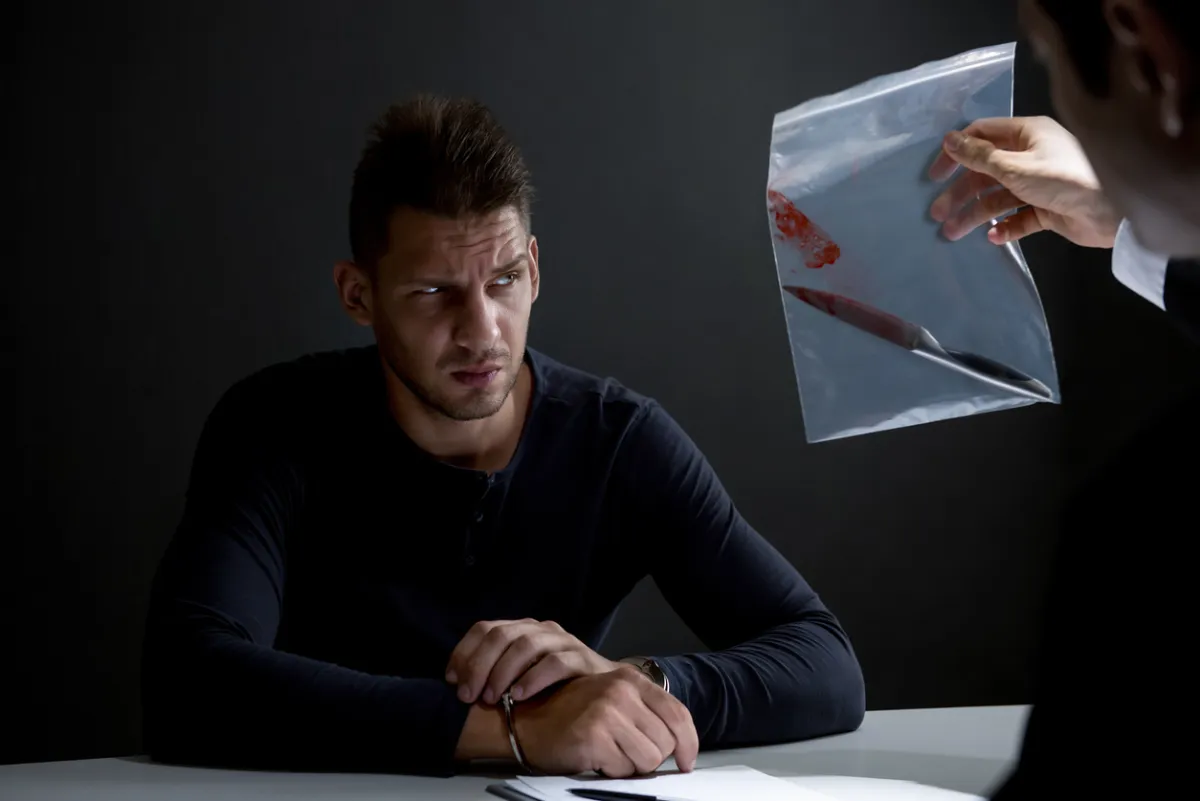When a disagreement gets out of hand and fists start flying, you could end up facing assault or assault and battery charges. These are serious offenses, and prosecutors can be aggressive in pursuing convictions. If their efforts are successful, you can be saddled with a criminal conviction on your record and face incarceration, fines, and other penalties.
An experienced assault and battery lawyer in Fairfax can help you avoid these consequences by helping you challenge the state’s case against you. Your criminal defense attorney in Virginia will know how prosecutors typically build their cases and, as a result, how to put together a defense strategy that exposes the weaknesses in the state’s case.
The old maxim, “know your enemy,” is just as relevant on the battlefield as it is in the courtroom. The more you know about how prosecutors approach assault and battery cases and how defense attorneys fight back against these charges, the more confident you will feel about responding to your case.
Understanding the Prosecutor’s Perspective
Many individuals become prosecutors because they want to help crime victims see justice. Thus, when your assault and battery case lands on the prosecutor’s desk, it represents an opportunity for them to help someone they believe needs justice. This desire to help others can lead the prosecutor to make one or more critical errors, such as:
- Filing assault & battery charges before law enforcement officers have completed their investigation
- Bringing assault or battery charges against you without corroborating evidence
- Pursuing a conviction in your case despite you having a strong claim of self-defense
- Failing to manage the alleged victim’s expectations and allowing the victim to dictate how the case is handled
- Refusing reasonable plea agreements
Beyond a desire to help victims, prosecutors can face other pressures that affect how they approach assault and battery cases. This can come from supervisors or office policies that line prosecutors must follow, or it can come from law enforcement officers who insist their cases be prosecuted to the fullest extent possible.
Victims, supervisors, and police officers alike may insist that prosecutors pursue convictions against individuals who commit assault & battery with weapons, against victims who share certain protected characteristics, or who have been previously convicted of violent crimes against others.
Notwithstanding these pressures, prosecutors are often overworked and may not have the time that they need to devote to every assault and battery case. As a result, some prosecutors are willing to make plea deals with people charged with assault and battery, especially if it appears they may have a strong defense.
Types of Assault Charges
Virginia law recognizes two general assault-related crimes: simple assault and assault and battery. Simple assault occurs when one person takes some action that causes another person to have a reasonable fear of imminent harm to themselves. Simple assault does not require any proof that the victim suffered bodily injury or that any physical contact was made with their body.
A person commits assault and battery when that person commits a simple assault and, in so doing, intentionally strikes, hits, or makes contact with the other person. Although the prosecution does not need to prove that the other person sustained bodily injury, they must show there was an intent to cause physical harm to the alleged victim.
First-Time Assault Offense Consequences in VA
Simple assault and assault and battery are Class 1 misdemeanors and can result in a jail sentence of up to 12 months, a fine of up to $2,500, or both jail time and fines. A court could also place you on probation and order you to comply with certain conditions, including paying restitution to the victim, completing substance abuse treatment, and avoiding future contact with the victim.
These crimes become Class 6 felonies if they are committed against a victim because of that victim’s national origin, sexual orientation, gender identity, disability, or other protected characteristic. Simple assaults or assaults and batteries committed against police officers, judges, firefighters, volunteer firefighters, and others are also treated as felonies, as are those committed with weapons.
Felony assault and battery charges can be punished by up to five years in prison. There is a mandatory minimum sentence of six months of confinement for any form of felony assault committed against a victim because of their national origin, sexual orientation, gender identity, or status as a police officer, judge, or other specified profession.
Common Elements Prosecutors Use to Build Their Case
Criminal offenses like simple assault or assault and battery consist of “elements”: allegations that the prosecutor must prove are true using evidence and witness testimony. The common elements of assault charges include:
- An intent to place another person in reasonable fear of imminent harm
- Some action that makes the victim fear they are about to suffer bodily injury or physical harm
The common elements of assault and battery charges are:
- Physical contact with the victim
- An intention to cause harm to them
What evidence is used in assault cases to prove the prosecutor’s case? Sources of evidence may include the following:
Law Enforcement Officers Who Responded to and Investigated the Crime
These first responders would have collected photographs of the scene, spoken to witnesses, and collected the victim’s version of events. If you do not invoke your right to an attorney, these officers will try to question you and get you to give your side of the story. However, it is usually unwise to speak with police officers without your criminal defense attorney present.
Emergency Medical Services Personnel and Medical Staff
If your assault and battery case involves bodily injury or any type of physical harm, the prosecutor will need the testimony and reports of the people who treated the victim’s injuries. This helps the prosecutor prove how seriously the victim was hurt and what the likely cause of those injuries was.
Emergency medical services personnel might also testify as to statements the victim made on the scene.
Eyewitness Testimony
If others were present at the time of the confrontation, these individuals can become important parts of the state’s case against you.
Eyewitnesses who saw even just a part of the incident can help corroborate details of the prosecution’s case, including whether the victim reported any physical injury after the event and if the event appeared to be motivated by the victim’s national origin or other characteristic.
Photographs and Videos of the Incident
Prosecutors eagerly prosecute assault and battery cases where the altercation, or part of it, was caught on camera. This footage may be found on surveillance cameras, doorbell cameras, or the phones of witnesses who saw the incident unfold. However, savvy prosecutors know that video footage can also be essential to helping you prove your claim of self-defense.
No matter the situation, a common prosecutor strategy in criminal cases involves obtaining as much evidence from as many different sources as possible. They will then attempt to prove that their evidence tells a coherent story that includes you committing a criminal act.
How to Challenge the Prosecution’s Evidence
“How to defend against assault and battery?” is a complex and case-specific question. However, the answer always includes evaluating and challenging the prosecution’s case.
How to Beat an Assault Charge in Virginia
As someone charged with simple assault or assault and battery, you have a right to view most of the reports, statements, and other evidence the prosecution intends to use against you. One of the primary tasks you and your criminal defense attorney will undertake will be to challenge the prosecutor’s evidence and expose its flaws.
Some common ways this is done in assault and battery cases are by showing:
- Law enforcement officers failed to properly or thoroughly investigate the case
- The prosecutor’s witnesses are biased against you, or they could not see or hear what they claim to have experienced
- The video footage is blurry, inconclusive, or clearly does not support the prosecutor’s version of events
- Your statements and other evidence were obtained in violation of your constitutional rights
The more weaknesses and holes you can expose in the prosecution’s case, the more difficult you make it for them to meet their burden of proving you guilty. In some cases, challenging the prosecutor’s evidence early and effectively can cause the prosecutor to dismiss your case entirely.
Building an Effective Defense Strategy
The prosecutor always has the legal burden of proving you are guilty beyond a reasonable doubt of assault and battery. If they fail, the judge or jury hearing your case must find you not guilty of simple assault or assault and battery.
You are not required to say anything or present any evidence at your trial, and the court cannot hold your silence against you when determining your guilt or innocence.
Self-Defense and Defense of Others as a Strategy
An effective defense strategy does not merely rely on the prosecution being unable to meet its burden. Instead, it should also consider whether you have affirmative defenses that can exonerate you.
You may be able to assert a valid self-defense claim. Self-defense in assault cases in Virginia is available and can protect you against an assault and battery conviction if the victim was the aggressor and you acted to protect yourself from bodily injury.
Similarly, you might also be able to claim you were defending another person from the victim’s aggressions. As with self-defense, this defense is available if you acted reasonably to protect someone else from suffering physical harm. The amount of force you use must be reasonable and proportionate to the force the victim was using.
Your criminal defense attorney can review your case and advise you on what defenses you can raise. A successful defense could lead to the dismissal of your charges, lowering the offense from felony assault and battery to a misdemeanor, the avoidance of mandatory minimum terms, and other benefits.
First-Time Offenders: Opportunities for Reduced Penalties
If you do not have a previous conviction for simple assault or assault and battery, your defense strategy might include a plea deal or diversion program. These options present you and the prosecution with benefits: the prosecutor gets to resolve your case quickly while holding you accountable. Similarly, you could avoid a conviction entirely or at least the more serious consequences a conviction might bring.
Pretrial diversion programs vary throughout Virginia, but most allow someone with no or minimal criminal history to postpone the prosecution of their case. They agree to complete certain conditions and pay specified costs. Provided they do so and do not commit new crimes during the diversion period, the case is eventually dismissed, and no conviction is recorded.
If a diversion is not available to you, there may still be an opportunity to reach a plea agreement with the prosecution. Plea deals in assault and battery cases typically require you to enter a guilty plea to one or more specified offenses.
In return, the prosecution agrees to recommend more lenient sentencing terms. For example, you may agree to plead to simple assault as a misdemeanor rather than assault and battery as a Class 6 felony.
Not every person charged with simple assault or assault and battery will have these opportunities available to them. However, having a criminal defense attorney knowledgeable in Virginia assault laws can help you build a solid defense and can increase the likelihood that your charges can be successfully resolved in some way. Most prosecutors would prefer a diversion or plea deal to suffering a loss at trial.
Navigating the Legal Process and Courtroom Tactics
Facing and resolving assault and battery or simple assault charges can be a long process. If this is your first time encountering the legal system, it can also be confusing, leading to anxiety and stress. Prepare yourself in advance for the prosecutor to use the various steps in the process to try to intimidate you into accepting the prosecutor’s terms for a plea deal.
For example, at your first hearing, the court will ensure you understand the charges that have been filed against you and the potential penalties you could face if convicted. While legally required, this is also an opportunity for the prosecutor to play on your fears, anxieties, and any embarrassment you might feel over being charged. These emotions can lead some to accept whatever plea terms the prosecutor offers.
As your case continues, the prosecutor may make other plea offers to you to try to resolve your case before trial. Where the prosecution believes its case is strong, you can expect the plea offers to contain terms that are favorable to the state. However, if the prosecutor believes you have a strong defense strategy or claim of self-defense, the terms of these agreements can become more favorable to you.
An effective strategy in and out of court that your criminal defense attorney may employ is to insinuate to the prosecution that your defense strategy is strong without revealing entirely what it consists of.
The less certain the prosecution is in their case, and the less confident they feel about responding to your case strategy, the more eager they will be to settle the case on your terms.
Finally, if your case does go to trial, you must have experienced legal counsel available. The process of putting your defense strategy into practice before a judge or jury takes skills that only come from extensive trial experience.
Your lawyer can explain to the court why the law and the facts show you did not commit simple assault or assault and battery, or that you acted in self-defense.
Contact Scott C. Nolan Today When You Need to Fight Assault Charge in Virginia
Experience matters when you have been charged with simple assault, assault and battery, or felony assault in Virginia. With some offenses carrying mandatory minimum terms, up to a year or more of jail time, fines, and other consequences, you deserve someone who will fight for your rights. You may have a valid self-defense or other claim, but you must be able to have your story heard in court.
Scott C. Nolan understands how prosecutors look at assault & battery cases and how they try to win. We fight back with defense strategies that are personalized to our clients’ goals and tailored to the facts of their cases. Contact us today and schedule an initial case review so we can discuss your situation and next steps with you.



